IRDR Humanitarian Summit 2021: Interrogating changing risks
16 June 2021, 10:00 am–4:00 pm

The UCL Humanitarian Summit will debate and discuss how climate change, conflict and other global phenomena are shaping both the humanitarian sector and humanitarian studies as a field of research and teaching, and vice versa. Coming a few months ahead of COP26, the Humanitarian Summit will also discuss how feminist perspectives in particular might contribute to challenges and solutions.
This event is free.
Event Information
Open to
- All
Availability
- Yes
Cost
- Free
Organiser
-
Dr Jessica Field
In September 2021, IRDR will launch a brand new degree programme aimed at understanding and tackling some of the world's most pressing challenges: the Global Humanitarian Studies BSc. In advance of this launch, the IRDR's annual Humanitarian Summit will offer some provoking debate and discussion around how climate change, conflict and other global phenomena are shaping both the humanitarian sector and humanitarian studies as a field of research and teaching, and vice versa.
We welcome staff, students, alumni, policymakers and the public to join the debate.
The one-day online event will be split into two themes:
10:00-12.30: Humanitarian work and research at risk
In the morning sessions, guests will discuss the increasing risks humanitarian workers and researchers are facing in "the field", with increasing targeting, experiences of harassment/violence, state restrictions, and also COVID-19 related impacts on mobility. A key question will be: What do these violence and "access" challenges mean for the future of humanitarian work and humanitarian studies?
14:00-16:00: “New risks” and old approaches, or vice versa? Interrogating gender and climate security rhetoric
Climate change is the “new” global threat and climate security is a new way of framing the risks posed by climate-related hazards in economically and politically fragile settings. Is this narrative undermining development approaches that aim to address the underlying causes of climate change and environmental degradation e.g. fossil fuel based-economies or gender and race inequalities? Is this yet another distraction to avoid challenging hegemonic discourses on controlling (and destroying) the environment and controlling populations? These afternoon sessions will discuss whether current discourses around climate change adaptation and mitigation have come some way (if at all) in integrating alternative, often more feminist, perspectives to frame the problems and solutions.
Summit programme
10:00–10:15: Welcome and introduction by Prof Peter Sammonds
10:15–10:45 Keynote – Humanitarian action today: the importance of accountability and advocacy by Prof Dorothea Hilhorst
10:45–11.15 Q&A chaired by Dr Jessica Field
11:15–11:30 Break
11:30–12:00 Panel discussion 1: Humanitarian work and research at risk
12:00–12:30 Audience Q&A chaired by Dr Jessica Field
12:30–14:00 Break
14:00–14:30 Keynote: Climate Change by Dr. Sherilyn MacGregor
14:30–15.15 Panel discussion 2: New risks and old approaches, or vice versa? Interrogating gender and climate security rhetoric
15:15–16:00 Audience Q&A
16:00 Conference close
16:30–17:00 Global Humanitarian Studies BSc offer holder meet and greet (invitation only)
Confirmed speakers
Keynote – Humanitarian action today: the importance of accountability and advocacy
- Professor Dorothea Hilhorst, Institute of Social Studies, Erasmus University
Dorothea Hilhorst is Professor of Humanitarian Studies in the Hague. She is an expert in development in areas affected by disaster, conflict or fragility, with a special focus on aid-society relations: the impact of humanitarian aid on society and the ways in which people and institutions shape the organisation of aid relations. Currently, her main research programme concerns where “Conflict meets disaster’, and studies disaster governance in high-conflict, low-conflict and post-conflict societies. In addition to her academic research, Thea maintains a portfolio of applied assignments and advisory work. She is president of the International Humanitarian Studies Association and a board member of the Core Humanitarian Standard Alliance.
Panel discussion 1: Humanitarian work and research at risk
- Larissa Fast, Humanitarian and Conflict Response Institute (HCRI), University of Manchester
Larissa Fast has worked at the intersection of academia, policy, and practice for over two decades. Larissa’s research addresses two fundamental problems: how best to protect civilians, particularly those who intervene in violent conflict, and how to make such intervention more effective, ethical, and responsive to local needs and circumstances. In addition to her book Aid in Danger: The Perils and Promise of Humanitarianism (2014), she has published more than twenty articles and book chapters, as well as over two dozen policy reports. Her research has been funded by the US Institute of Peace, US Agency for International Development, Swiss Development Corporation, the Research Council of Norway, FCDO, ESRC, and the Wellcome Trust.
- Mihir Bhatt, Director, All India Disaster Mitigation Institute (AIDMI)
Mihir R. Bhatt is the director of the All India Disaster Mitigation Institute (AIDMI). He works on reducing risk-related action and learning and is involved with the Experience Learning Series on Learning and Risk Mitigation; Southasiadisasters.net; Afat Nivaran (a Gujarati Newsletter) and Vipada Nivaran (a Hindi Newsletter). Mihir is widely published on issues of vulnerability and disasters, and has been part of key evaluations of disaster response in Asia. He is a Senior Fellow of the Harvard Humanitarian Initiative since 2007 and was a member of the panel that selects the Humanitarian Coordinators for the United Nations. He has an advisory role in the Climate Development Knowledge Network’s work on climate compatible development in nine states of India with focus on urban resilience, green finance, and renewable energy at subnational level.
- Belen Desmaison, Pontificia Universidad Catolica del Perú
Belen Desmaison is a Lecturer at the Department of Architecture and a researcher at the Research Centre in Architecture and the City, both at the Pontificia Universidad Catolica del Perú. Belen is also completing a PhD at the University of Durham. Belen coordinated the action-research project CASA [Ciudades Auto-Sostenibles Amazónicas] (2017-2018). Currently, she coordinates the Lima chapter of KNOW: Knowledge in Action Towards Urban Equality (2018-2021), an action-research project led by UCL. She is also the Monitoring, Evaluation & Learning Coordinator for the Latin America and the Caribbean region on GRRIPP [Gender Responsive Resilience and Intersectionality in Policy and Practice] at UCL. Belen's interests include settlement relocation, socially and environmentally just urban practices, social housing, planning and urban design in the global South.
Keynote: Climate Change
- Dr. Sherilyn MacGregor, The University of Manchester
- Sherilyn MacGregor is a Reader in Environmental Politics at the University of Manchester. She specialises in the relationships between environmental (un)sustainability and social inequality, applying insights from environmental justice, ecofeminist, and other critical political theories.
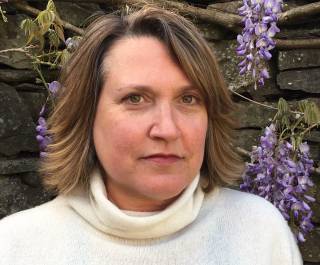
Current research projects include: the impacts of climate change on unpaid care work (funded by Oxfam USA); a feminist Green New Deal for the UK (funded the Women’s Budget Group); and ‘everyday sustainabilities’ in racialised immigrant households in Manchester (funded by the Leverhulme Trust). She is Editor of the Routledge Handbook of Gender and Environment and an Editor of Environmental Politics journal.
Panel discussion 2: New risks and old approaches, or vice versa? Interrogating gender and climate security rhetoric
- Dr. Lisa Schipper, Environmental Change Institute, University of Oxford
- Dr Lisa Schipper is an Environmental Social Science Research Fellow at the Environmental Change Institute at the University of Oxford. Her work focuses on adaptation to climate change in developing countries, and looks at gender, religion and culture to understand what drives vulnerability. By examining how development affects the extent to which people are likely to be affected by climate change, she seeks to address the question of whether fair and just development is possible in a changing climate.
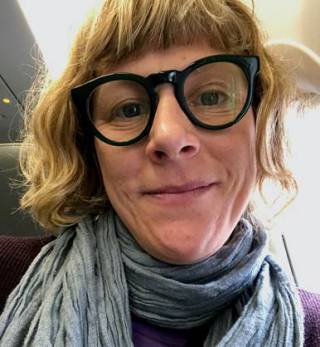
Lisa is currently Co-ordinating Lead Author of Chapter 18 of the Working Group 2 contribution to the Sixth Assessment Report of the Intergovernmental Panel on Climate Change (IPCC) (‘Climate Resilient Development Pathways’). She is co-Editor-in-Chief of the journal Climate and Development (Taylor and Francis), Associate Editor of Mitigation and Adaptation Strategies to Global Change (Springer) and member of the editorial board of the journals World Development Perspectives (Elsevier) and Global Transitions: Health Transitions (KeAi).
Lisa holds a PhD in Development Studies from the University of East Anglia. She has lived and worked in Central and South America, East and West Africa and South and Southeast Asia.
- Dr. Amiera Sawas, Climate Outreach
Amiera is a feminist researcher and advocate who has worked for a long time on the intersections of climate change, gender and security. More recently she has moved into advocacy and public engagement on climate change - to try to build awareness of the critical importance of bringing diverse voices and agency into the climate response. She’s really passionate about working to ensure an inclusive vision for our collective future, which is co-created and driven by the people most affected and most excluded. Amiera has worked across the private, non-governmental and academic sectors, across various countries including Sweden, Pakistan, Jordan and Kenya.
Amiera has a PhD in Human Geography, a Masters in Global Politics and a Bachelors in Psychology. She is terrible at languages but has managed to hone a good grasp of French, as well as some basic Urdu. She is currently making her Syrian family proud by finally dedicating time to learning Arabic. In her spare time she can be found dancing samba, listening to hip hop and endlessly watching true crime documentaries.
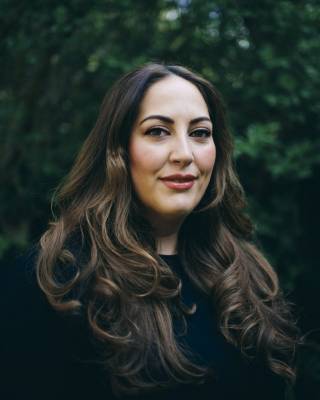
- Hannah Elisabeth Kurnoth, adelphi
- Hannah Elisabeth Kurnoth works as an Analyst at adelphi in the field of climate diplomacy and security. In this position, she helps to coordinate and support Weathering Risk, the global climate and security risk and foresight assessment, and organises the Berlin Climate and Security Conference. Furthermore, she records the Climate Diplomacy Podcast, supports climate security trainings for governments and international organizations and supports the preparation and implementation of various other projects and publications. In addition to her in-depth knowledge of the climate security nexus, she has experience in the areas of UN sustainable development goals (SDGs), gender and climate security, sustainability and international security. She wrote her Master Thesis under the supervision of Amb Wolfgang Ischinger about the implementation of the women, peace and security agenda in Germany.
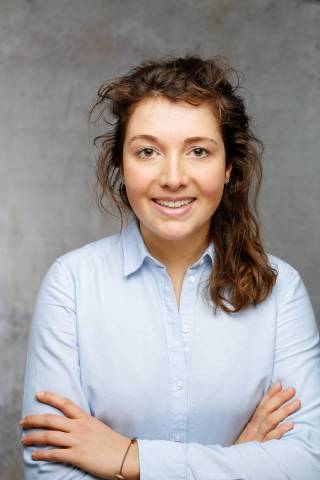
- Discussant: Prof Susan Buckingham, Researcher and writer on gender and environmental justice
- Susan Buckingham is a gender expert, with specific reference to gender in environmental action, policy and decision making. She has recently worked on EU waste and marine initiatives: as the gender expert on Urban Waste, and on the Advisory Board of Baltic Gender, a project developing gender equality in marine research and higher education. She is currently the gender expert on the Empowering Women project on gender equality in the UN Decade for Ocean Science. Susan has also worked with the UNDP, UNEP, and in Pakistan, as well as across Europe. She is widely published (the revised second edition of her book 'Gender and Environment' was published in 2020), and has a public profile through the BBC and print media. Susan also contributes to the work of women's charities, and organisations promoting gender and environmental justice.
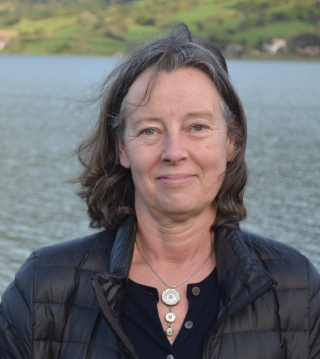
Tag us on social: #UCLHS21
Please note this conference will be recorded and livestreamed on the IRDR YouTube channel.
 Close
Close

